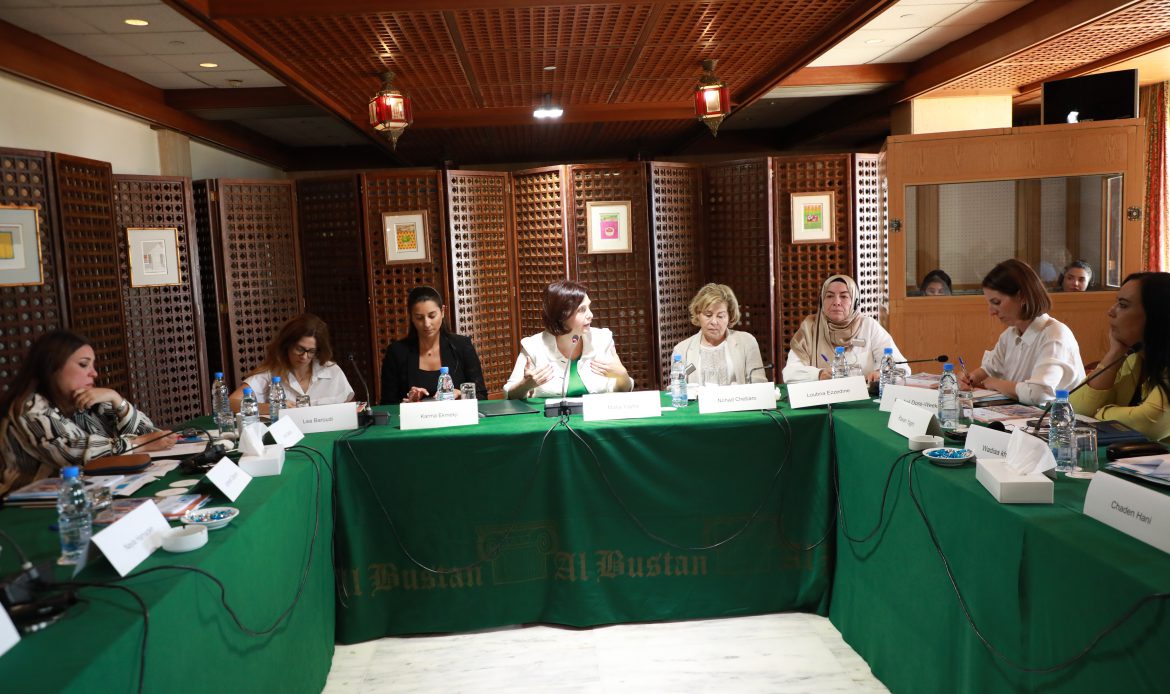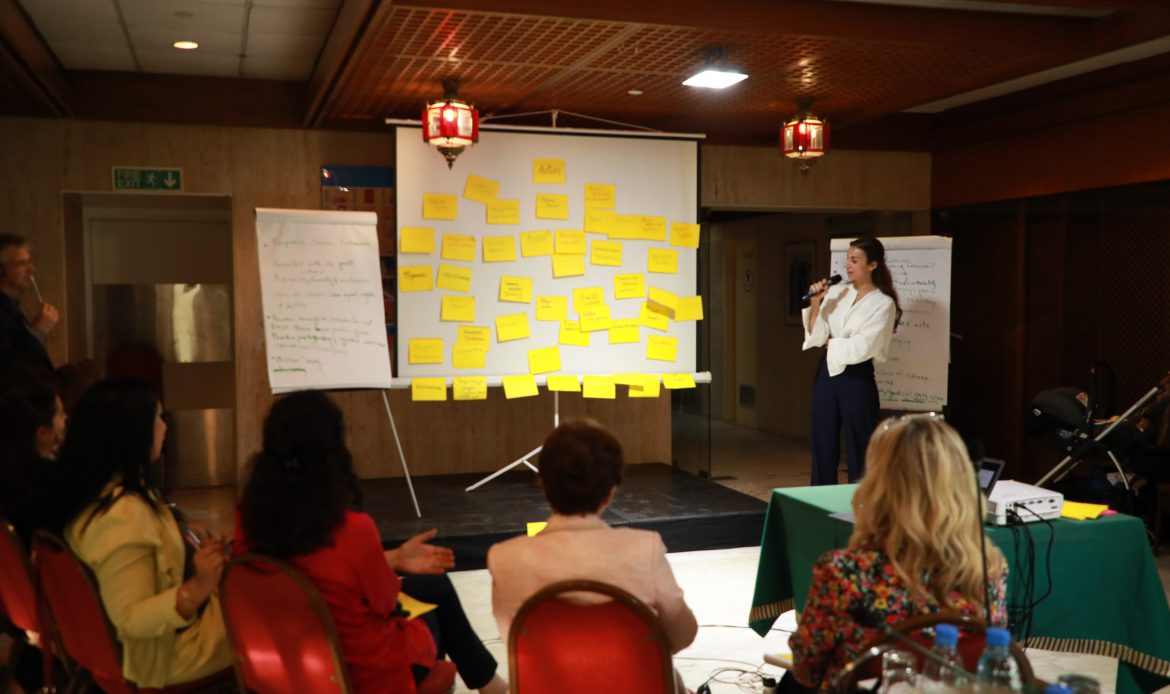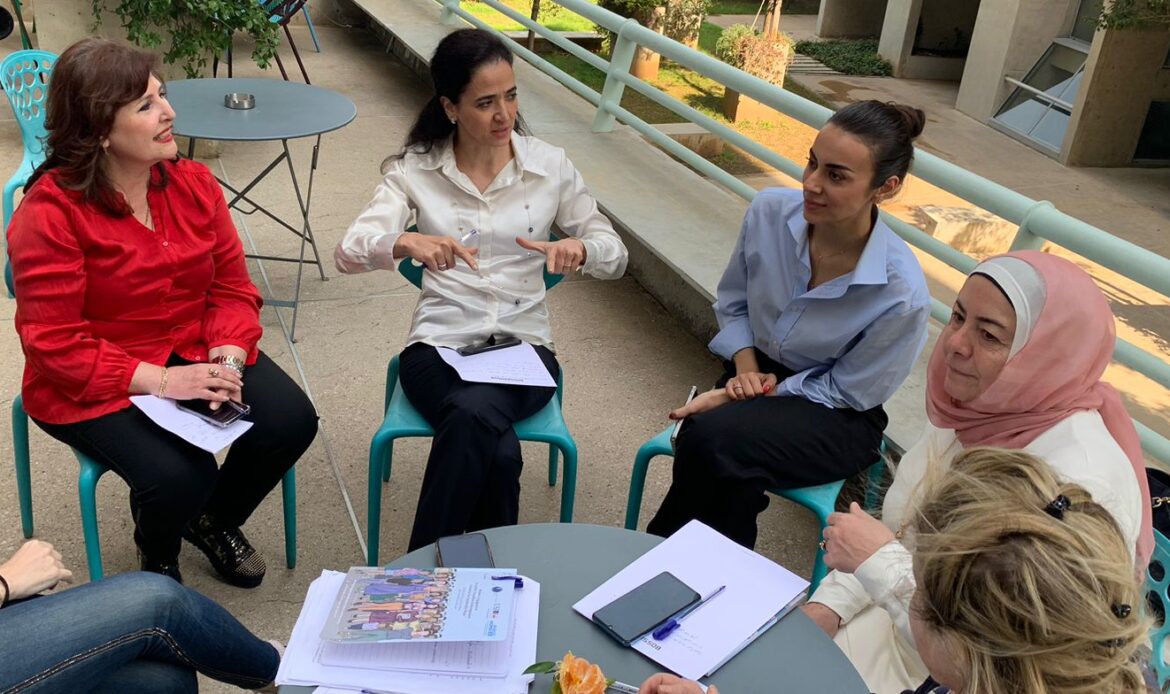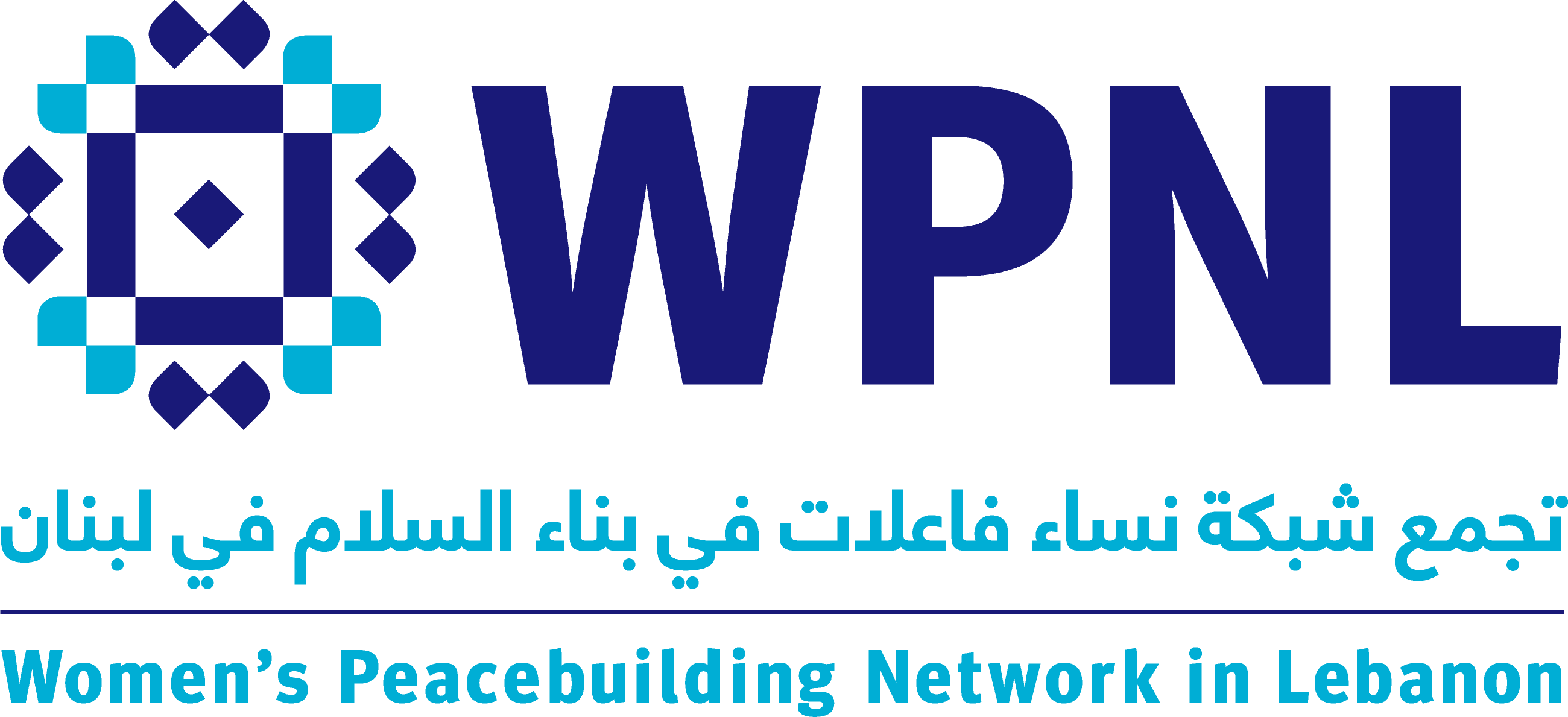
About WPNL
The Women’s Peacebuilding Network in Lebanon (WPNL) brings together women peacebuilders committed to inclusive and sustainable peace. The network aims to amplify women’s contributions to peacebuilding in Lebanon while strengthening its members’ leadership and participation through learning, exchange of expertise, and networking.
In the face of Lebanon’s ongoing political, economic, and social crises – marked by rising tensions and deepening polarization among political and sectarian groups, and increasing community conflicts – the need for peace and dialogue initiatives is greater than ever.
Recognizing this urgency, women peacebuilders across Lebanon have come together to establish the Women’s Peacebuilding Network in Lebanon (WPNL). This network showcases women’s leadership in peacebuilding, conflict resolution, and mediation, demonstrating that women are leading peacebuilding initiatives across the country. Historically, women have been excluded from formal peace negotiations, including in the Ta’if Accords that brought the civil war to a halt in 1991, and in the subsequent national dialogues, established with the National Dialogue Committee in 2010. WPNL seeks to challenge this exclusion and ensure that women’s voices are central to peacebuilding efforts.
The network will function as an umbrella for women peacebuilders, bringing together mediators, practitioners, and other peacebuilders working across formal and informal processes and initiatives. It facilitates capacity building, knowledge exchange, peer-to-peer learning, and enhances visibility of women’s contribution in peacebuilding in Lebanon.
The network comprises of women peacebuilders coming from all eight governorates across Lebanon, reflecting the country’s rich diversity in age, social, religious, national, and political backgrounds.
WPNL is an independent and inclusive network, capitalizing on the breadth and depth of women-lead peacebuilding efforts across Lebanon.


Peace and dialogue initiatives are needed now more than ever in Lebanon, considering the political, economic and social crises facing the country, which in turn is posing increased threats to peace by raising tensions and deepening polarization among political and sectarian groups, and increasing tensions in the communities.
Against this background, female peacebuilders across Lebanon have come together to establish the Women’s Peacebuilding Network in Lebanon (WPNL). The network aims to model women’s leadership in peacebuilding, conflict resolution and mediation, and to demonstrate that women are leading peacebuilding initiatives across the country, in a context where women have historically been excluded from formal peace negotiations, including in the Ta’if Accords that brought the civil war to a halt in 1991, and in the subsequent national dialogues, established with the National Dialogue Committee in 2010.
The network aims to amplify women’s contributions to peacebuilding in Lebanon, and to strengthen its members’ leadership and participation through learning, exchange of expertise and networking. The Women's Peacebuilding Network in Lebanon will function as an umbrella for female peacebuilders, bringing together mediators, practitioners and other peacebuilders working across formal and informal peacebuilding processes and initiatives, by creating a space
for mutual support for women committed to inclusive and sustainable peace.
The network comprises of 18 female peacebuilders coming from all eight governorates across Lebanon, reflecting diversity in age, social, religious, national and political backgrounds.
Our Objectives

